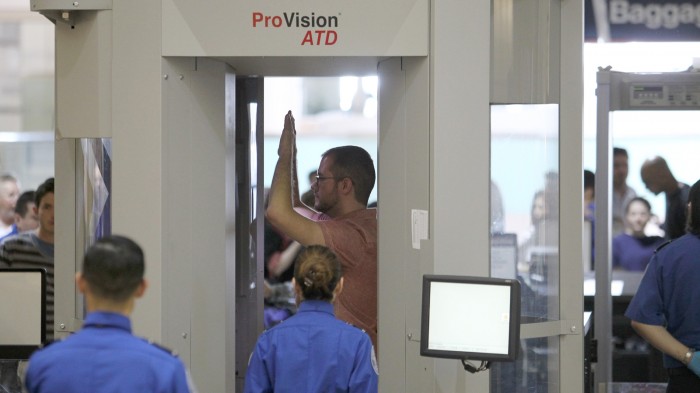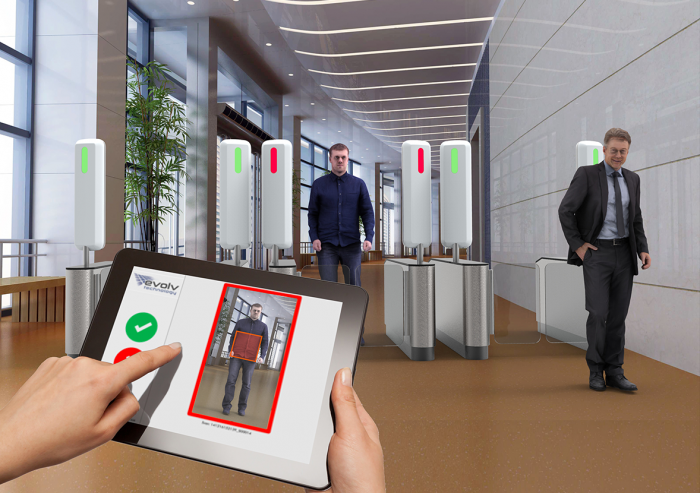AI Body Scanners Could Solve the Worst Thing About Airports
The most annoying thing about airports is going through security. But a startup called Evolv Technology is getting set to begin public tests of a new AI-powered body scanner, which it claims will allow people to saunter through checkpoints without breaking stride or emptying their pockets.

The Guardian reports that Evolv has built its scanner using the same millimeter-wave imaging frequencies as existing (and often controversial) full-body scanners. But instead of having someone stand still in a circular booth, the company scans its radar beams up and down people as they walk, measuring how the waves scatter off them.
The data isn’t used to create an image like those normally shown to security staff. Instead, it’s processed by a machine-learning algorithm that’s been trained to spot dangerous items like explosives and weapons. If the system thinks it’s spotted something, a member of security staff is alerted to perform a more detailed check.

Evolv claims that no data is stored in such a way that it can be later traced back to an individual person. It also points out that it never has to deal with the awkward nudie imaging problem that’s been a source of ire about full-body scanner critics in the past.
The devices will be tested at train stations in both Washington, D.C., and Los Angeles. Denver International Airport is also in talks with Evolv Technology about testing its scanners. The company claims the devices could be able to scan as many as 800 people per hour. But in situ testing is bound to throw up all kinds of anomalies that confuse the artificial intelligence at first, so the lines may not quicken that much right away.
(Read more: The Guardian, “How to Find Hidden Explosives at Airports,” “Next Big Test for AI: Making Sense of the World”)
This article was updated on October 31 to reflect that Denver International Airport is in discussions with Evolv Technology. The airport is not currently testing the scanners.
Keep Reading
Most Popular
Large language models can do jaw-dropping things. But nobody knows exactly why.
And that's a problem. Figuring it out is one of the biggest scientific puzzles of our time and a crucial step towards controlling more powerful future models.
The problem with plug-in hybrids? Their drivers.
Plug-in hybrids are often sold as a transition to EVs, but new data from Europe shows we’re still underestimating the emissions they produce.
Google DeepMind’s new generative model makes Super Mario–like games from scratch
Genie learns how to control games by watching hours and hours of video. It could help train next-gen robots too.
How scientists traced a mysterious covid case back to six toilets
When wastewater surveillance turns into a hunt for a single infected individual, the ethics get tricky.
Stay connected
Get the latest updates from
MIT Technology Review
Discover special offers, top stories, upcoming events, and more.